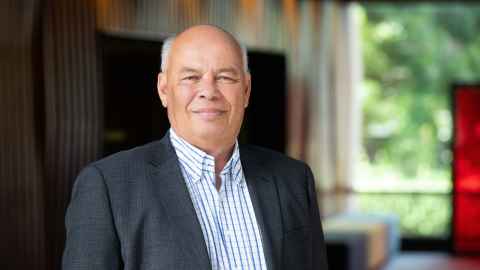Sir Collin Tukuitonga to chair WHO Advisory group
11 June 2024
A stronger voice for Māori and Pacific with Sir Collin Tukuitonga's new WHO appointment.

Sir Collin Tukuitonga (Niue: Alofi) has been appointed as the World Health Organisation (WHO) chair of the Strategic and Technical Advisory Group on the Prevention and Control of Noncommunicable Diseases (STAG-NCD).
The Associate Professor of population health says the new role will see him advising on how best to manage conditions such as gout, obesity, diabetes, heart disease, and other noncommunicable diseases that affect Māori and Pacific disproportionately, in comparison to other communities. The appointment will give Māori and Pacific a stronger voice in this area.
“The World Health Organisation relies on experts from around the world, they have groups to advise them on what works, what doesn’t work and what the priorities are. I’ve been doing some work with World Health Organisation for some time so this is an additional responsibility particularly working with a global group.”
His focus will be on the Pacific region, in particular small island states that have major problems with diseases such as diabetes, but lack the resources to make headway, lamenting the efforts that have been made over the decades to tackles rates and improve health outcomes.
The one-size-fits-all tactic was not effective for certain groups, there was a need for targeted health support for Māori and Pacific; taking the same old, same old approach would not bring about any improvements or lift outcomes.
Life expectancy rates for Māori and Pacific peoples remain low
Life expectancy rates in Aotearoa for Māori and Pacific peoples have increased over the years but still remain low. Māori men on average live to 73 years, seven years less than non-Māori; while Māori women on average live to 77, six years less than non-Māori.
For Pacific peoples the numbers were only marginally better, with Pacific men living to approximately 75 years and Pacific women living to an average of 79 years. Outside of Aotearoa in the Pacific Island small states, the numbers dropped down to approximately 69 years.
He said the one-size-fits-all tactic was not effective for certain groups and there was a clear need for targeted health support for Māori and Pacific. Taking the 'same old, same old' approach would not bring about any improvements or lift outcomes.
Sir Collin says Men’s Health Week was a timely reminder for Māori and Pacific men to check in with their health providers, advising those aged in their 40s onwards, to have their blood pressure and blood sugar checked, and to do so on a fairly regular basis.
He said his appointment will allow him from a global point of view to identify things that make a difference. Sir Collin will hold the role for the next two years.